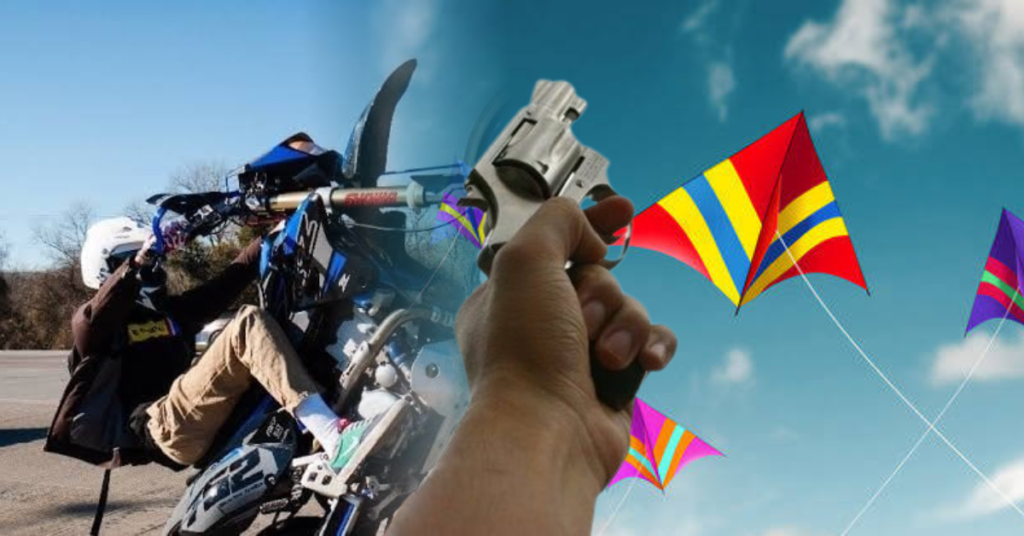In a groundbreaking decision to enhance public safety, prominent Islamic scholars have issued a fatwa declaring aerial firing, one-wheeling, and kite flying as un-Islamic. These popular but hazardous activities, often associated with celebrations, have drawn criticism for their dangerous consequences, including loss of lives and disruption of public order.
Why Are Aerial Firing, One-Wheeling, and Kite Flying Declared Un-Islamic?
The fatwa is grounded in core Islamic principles emphasizing the protection of human life, social harmony, and peace. Religious scholars highlight that activities causing harm, fear, or chaos conflict with Islamic values. Citing Quranic teachings and Hadiths, they reinforced the sanctity of life and the importance of maintaining public safety and tranquility.

The Risks of Aerial Firing, One-Wheeling, and Kite Flying
1. Aerial Firing
Aerial firing, a common practice during weddings, festive occasions, and New Year celebrations, has led to countless unintended tragedies. Stray bullets often claim innocent lives, creating fear and chaos in communities. This reckless act directly contradicts the Islamic principle of safeguarding lives.
2. One-Wheeling
One-wheeling, a dangerous motorcycle stunt popular among thrill-seekers, is a leading cause of road accidents, particularly among youth. This reckless behavior puts riders, pedestrians, and other road users at significant risk, making it a serious public safety concern.
3. Kite Flying
While kite flying appears harmless, it becomes dangerous when glass-coated or metallic strings (commonly known as manjha) are used. These strings have caused severe injuries to motorcyclists and pedestrians, and incidents of electrocution and fatal falls have been reported. Such risks have turned this recreational activity into a controversial issue.
Encouraging Responsible Behavior
The fatwa serves as a powerful call to action, urging individuals to avoid activities that endanger lives and disrupt societal peace. Parents, educators, and community leaders are encouraged to raise awareness about the risks of these practices and to promote safer, constructive alternatives for recreation.
This religious ruling also underscores the role of Islamic guidance in fostering a culture of responsibility and safety. By declaring these activities un-Islamic, scholars aim to deter their occurrence and prevent avoidable tragedies in society.
The Role of Government and Religious Leaders
The fatwa aligns with government initiatives to ban or regulate these activities through strict laws and enforcement. Authorities are urged to collaborate with religious scholars to spread awareness about the dangers of aerial firing, one-wheeling, and kite flying. Public awareness campaigns, community engagement, and educational programs can play a pivotal role in changing societal behavior.
The fatwa declaring aerial firing, one-wheeling, and kite flying as un-Islamic reflects the importance Islam places on the sanctity of life and public welfare. This decision reinforces the need to prioritize safety and peace over dangerous practices. With collective efforts from communities, religious leaders, and authorities, society can move toward a safer and more harmonious future.
